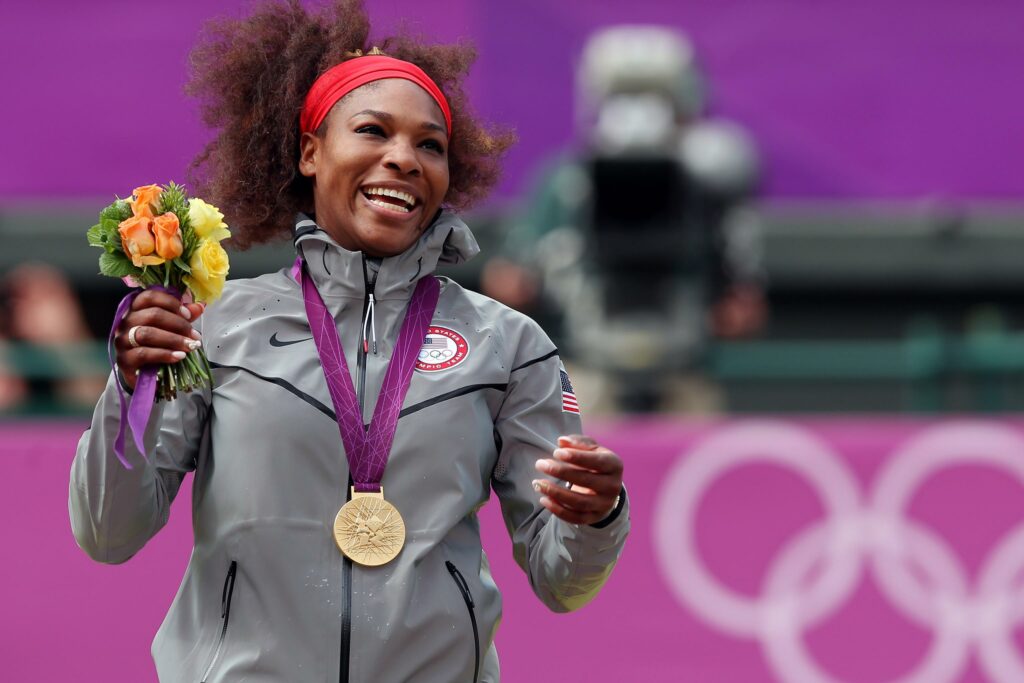The announcement of Serena Williams’ retirement leaves behind a legacy founded on her 27 year career in competitive tennis. During her lengthy career she has been subjected to discrimination, misogyny and racism, with media coverage that focused on her race and gender over her triumphs and victories. She has been a vocal activist and called for the media to focus on larger systemic issues in sports, a move that has redefined sports reporting. Williams has paved the way for female athletes through not only being an inspiration to many, but also being the catalyst that encouraged brands to take on more female athletes for brand sponsorships.
Across her lengthy, decorated career, Williams has established herself as an accomplished figure and propelled women’s professional tennis into the global spotlight. Commencing her participation in the professional tennis competitions from the age of 14, she has won a total of 23 singles grand slam titles, second only to Margaret Court with 24 titles. In addition, she has also won 14 women’s doubles and two mixed doubles grand slam titles. Her success in the arena led to what was dubbed the “Serena Slam”, where a player holds all four grand slam singles titles at the same time - a feat that she achieved twice. She holds four Olympic gold medals, three in doubles with her sister Venus and one in singles at the 2012 London Olympics. Over the entirety of her career she has been ranked No. 1 in the world by the Women's Tennis Association (WTA) for 319 weeks.

Williams’ success as a black woman in a predominantly white, patriarchal sport led to constant scrutiny from the media over everything from her race to her body. There are countless examples of the media fixating and criticising her appearance, including sports commentator Sid Rosenberg saying that her and her sister would be more likely to pose nude for the National Geographic, a Romanian TV show host comparing Williams to a monkey, Jason Whitlock describing Williams as “thick, muscled blubber” in a Fox News column, among many more insults feeding off of racist tropes. But alongside the brutal comments she received, there was a lack of focus on systemic issues present within the professional sports space. Historically, sports journalism was seen as a less-respected space where journalists would comment on play style or mundane sports topics. Following the Indian Wells tennis tournament where Serena and Venus Williams were faced with overwhelming racism and discrimination, resulting in them boycotting the tournament for 14 years, there was little media coverage surrounding the inherent patriarchal and racist nuances that was ingrained in professional tennis. But Williams changed all that by demanding that sports journalists address wider issues regarding the sport, such as the subpar maternal care for black women and the pay disparities women and men faced in professional tournaments. Williams opened a Pandora’s box that adjusted the media’s scope on sporting and encouraged wider debate on the real issues.
Female athletes in professional sports are less likely to get sponsored by companies due to the idea that women’s sports are less lucrative than their male counterparts - an idea that reinforces the gender inequality that is pervasive in sports. As a rising tennis star back in 1998, Puma took a chance on Williams despite not having been involved in the tennis space for twenty years. Following that partnership, she signed on with Nike, where she remained for 18 years. Her success with these partnerships paved the way for marketing budgets to allocate more funds to female athlete sponsorships. Some of the brands she has since worked with include Gatorade, Pepsi Co, Delta Air Lines and JPMorgan Chase & Co. Female athletes have struggled with having to prove their worth, and this can still be seen across the board with pay disparities still existing across basketball, golf and tennis. Williams’ legacy leaves behind the foundations for brands to believe in and sponsor female athletes, and one day see that women and men receive equal compensation.

Williams has also been very vocal on the issues she faces as a working mother. Following the birth of her first child at 36, Williams lost ranking points as the protected seeding period of two years had passed, resulting in an unseeded return to the French Open. Once again, Williams was vocal about reforming the WTA’s policies, saying that “I think as a woman you should have that choice to get pregnant and have a baby and still be able to have a career just like in any other job”. Many women have had to go through the same struggle of ranking as a seeded player before choosing to start a family, then needing to resume their career unseeded afterwards. And this speaks to a wider issue in society where female participation in the workforce is impacted by pregnancy. Approximately 50,000 women lose their jobs following a pregnancy, despite anti-discrimination laws forbiding it. And for the women who do return to work, they are faced with workplace discrimination, pressure to not attend antenatal appointments and significant drops in income. Williams shined a spotlight on an issue many women struggled with and called for changes to the ruling that disadvantaged mothers.
Throughout her career Williams was the centre of widespread racism, sexism and misogyny, and her case presents a highly visible example of the systemic issues we still face today. Although she’ll be ending her prosperous career at the end of this year, she leaves behind a legacy of reform and triumphs that have forever changed the professional sports space.
